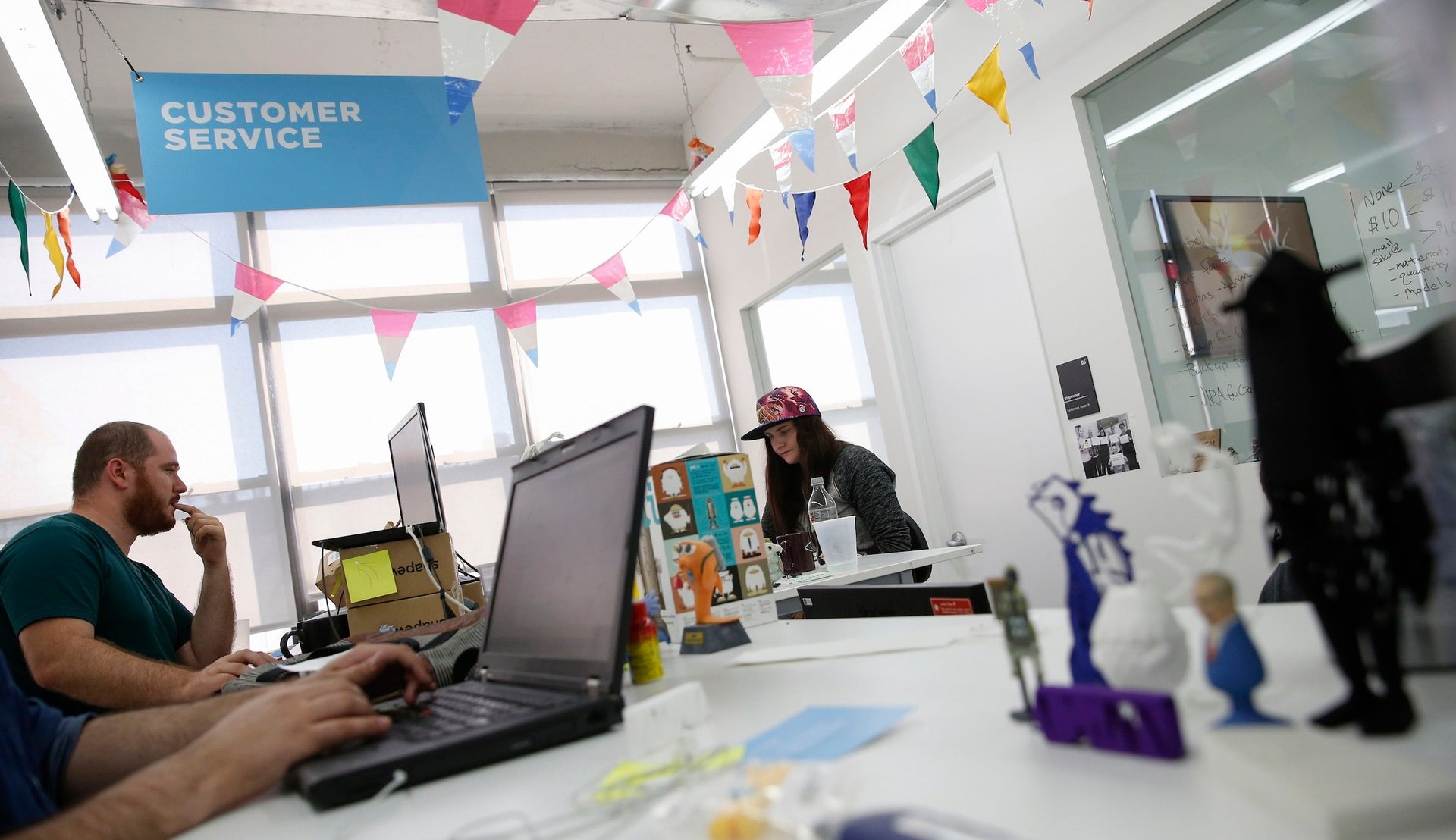Why even engineers think working from home is a bad idea
It seems intuitive that engineers and computer scientists would prefer working from home, since tasks like writing complex computer code require intense, solitary focus. But a debate started on Y Combinator’s Hacker News, the popular forum for tech types, has raised the question of whether, despite the interruptions and agitations of office life, people who do collaborative work are better off working from one place.


It seems intuitive that engineers and computer scientists would prefer working from home, since tasks like writing complex computer code require intense, solitary focus. But a debate started on Y Combinator’s Hacker News, the popular forum for tech types, has raised the question of whether, despite the interruptions and agitations of office life, people who do collaborative work are better off working from one place.
The debate was sparked by Matt Mullenweg, the CEO of remote worker haven Automattic, who was responding to a post from British venture capitalist and programmer Paul Graham on US immigration policy. Graham had argued on his website that limits on US visas for foreign workers hold companies back. Mullenweg took to his own blog to retort that many tech companies are avoiding an obvious solution to the problem, and throwing away some of the best talent, by refusing to hire employees who can work remotely.
In arguing his case, Mullenweg explained that remote workers offer talent on the cheap; living outside the Bay Area lowers their cost of living, while advances in communication technology—tools like Slack, Skype, and Google hangouts—make remote collaboration more effective.
Followers of the forum who opposed Mullenweg’s view argued that too often engineers overvalue individual productivity over team work and communication. ”Programmers tend to want to squirrel themselves away and work on stuff to maximize their own personal productivity, whereas organizations want to get a bunch of people working at a group optimum,” wrote Hacker News user timr. “That means that every individual takes a productivity hit for communication purposes, but that the organizational output is much higher than any individual could achieve.”
Others objected to the idea that digital tools can facilitate the kind of collaboration that comes from live interactions, which requires spontaneity. ”There have been numerous points in my career, ranging from being a sole technical cofounder to working in a 50K+ employee company, where a chance meeting has saved me weeks-to-months of implementation effort,” Hacker News user Nostrademons wrote. “And in each of those cases, the solution they suggested was not something I would’ve thought to look for on my own.”
Tech giants like Facebook, Google, and Yahoo have taken these lessons to heart. Facebook is building the world’s largest open plan office; Google encourages employees to work in its offices; and Yahoo’s Marissa Mayer told remote workers to start coming into the office or leave the company shortly after taking the helm.
Still, there were plenty of voices defending the remote worker. Offices, these contributor argued, are bogged down by noise, visual distractions, chatty co-workers, and office politics. Useless meetings and long commutes don’t help.
The two sides did agree on at least this one point: Whether in the office or at home, everyone needs some private space to be truly productive. At first glance, open office plans would seem to enhance camaraderie and futuristic thinking. But ultimately, every worker needs at least little time to themselves.